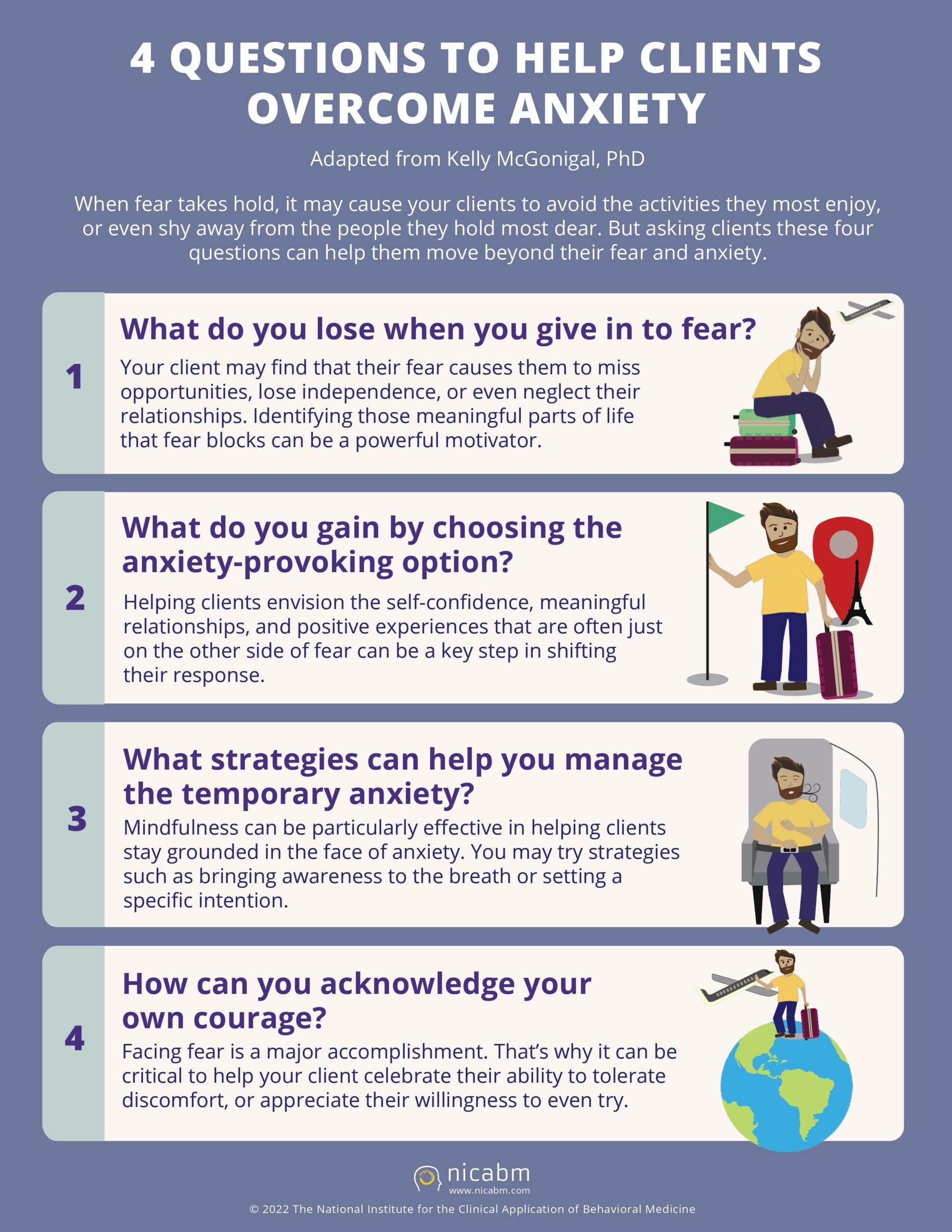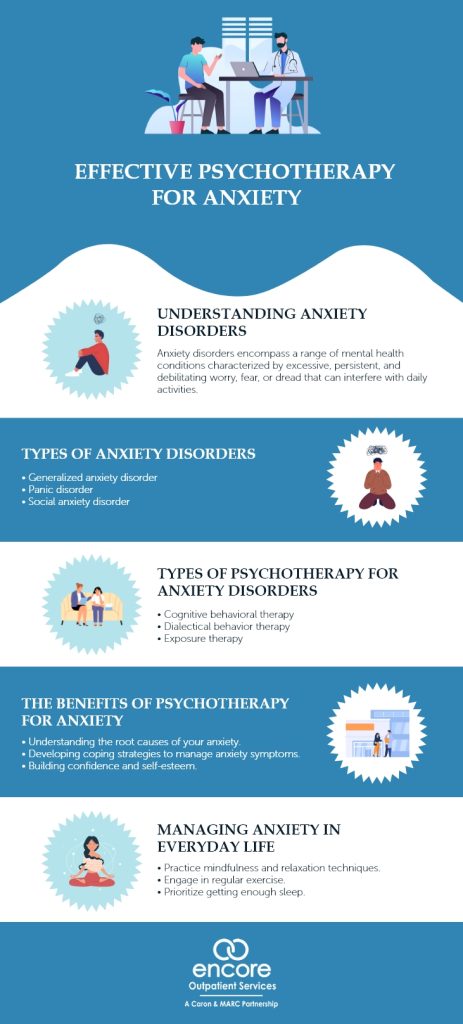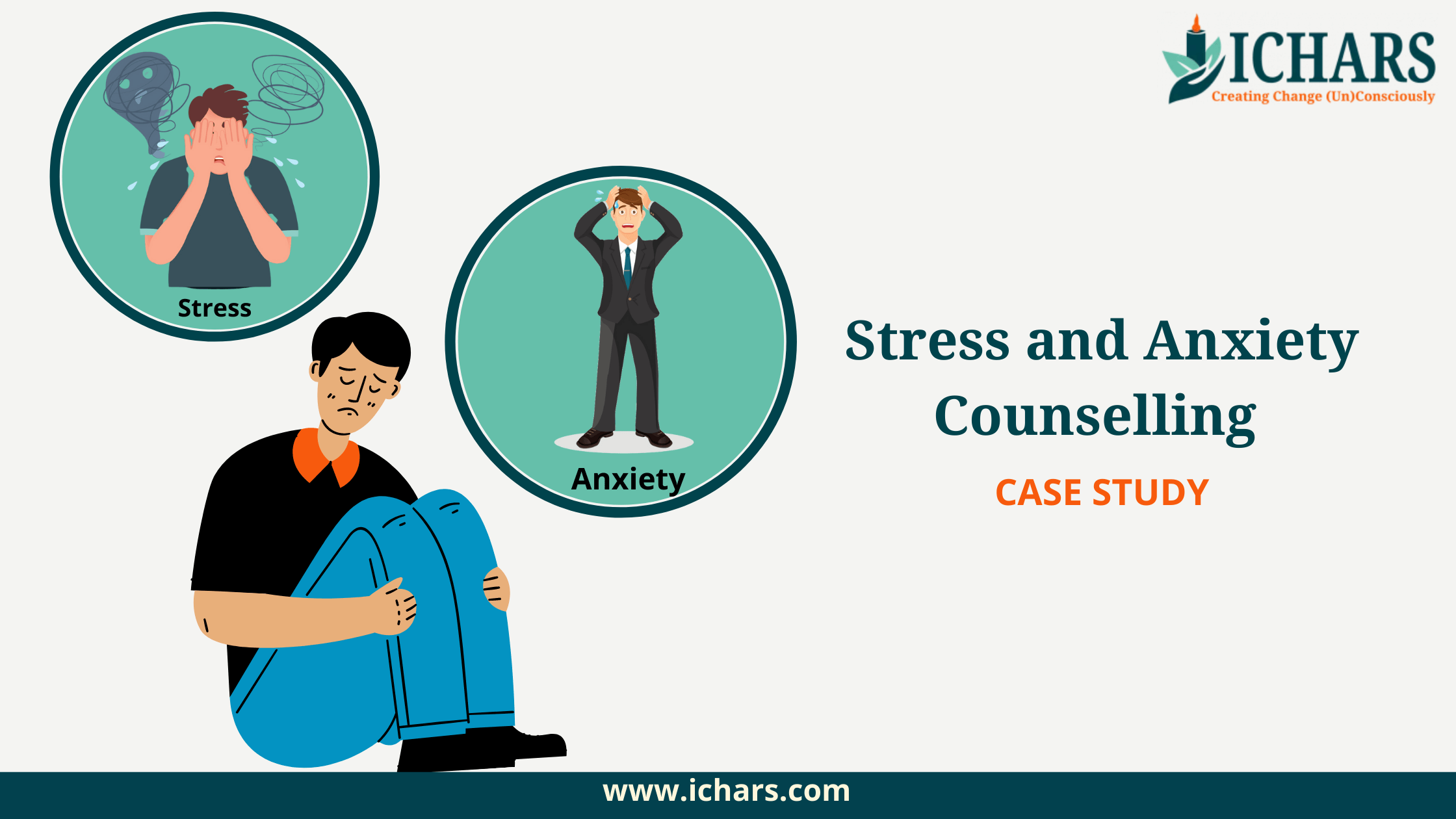Start your path with counselling for anxiety disorder guided by professionals
Start your path with counselling for anxiety disorder guided by professionals
Blog Article
Exploring Different Techniques in Therapy for Anxiousness Condition for Lasting Change
When tackling anxiety problems, it's important to explore a range of therapy approaches. Each technique supplies distinct understandings and devices to help you manage your signs and symptoms efficiently. You may discover that integrating techniques can produce the most effective outcomes. Recognizing the subtleties of these strategies is essential to promoting long lasting adjustment. What if the best combination could launch a brand-new level of emotional wellness for you?
Recognizing Anxiousness Disorders: A Brief Summary
Stress and anxiety conditions, which influence numerous individuals worldwide, can greatly impact daily life. You may experience overwhelming feelings of concern or fret that seem irrepressible. These sensations can cause physical symptoms like an auto racing heart, sweating, or also wooziness. Usual types of anxiety problems consist of generalised stress and anxiety condition, panic condition, and social stress and anxiety disorder. Each has unique signs, yet they all share a propensity to interrupt your routine and relationships.Understanding the root causes of your anxiousness is essential. It could originate from genes, brain chemistry, or life experiences. Recognizing your triggers can aid you manage your feedbacks better. It's vital to remember that you're not the only one in this struggle. Several individuals face comparable challenges, and seeking aid is a strong action toward feeling better. By discovering regarding anxiety conditions, you're already on the path to understanding and handling your problem better.
Cognitive-Behavioral Therapy: Testing Unfavorable Thought Patterns
In Cognitive-Behavioral Treatment, you'll start by identifying the adverse idea triggers that add to your anxiousness. As soon as you acknowledge these ideas, you'll work with replacing them with even more positive alternatives. With each other, you'll develop reliable coping techniques to help manage your anxiousness in everyday situations.
Identifying Negative Idea Triggers

When you experience moments of distress, acknowledging the certain triggers behind your negative ideas can be vital in managing anxiousness. Beginning by taking note of circumstances that prompt feelings of concern or fear. Is it a crowded room, an approaching target date, or a conversation with particular people? Jot down these instances in a journal. This will assist you identify patterns in your thinking. Likewise, notice physical feelings that accompany your unfavorable thoughts, like an auto racing heart or rigidity in your upper body. By pinpointing these triggers, you acquire understanding right into what's fueling your anxiety. Understanding these connections is the initial step in challenging those thoughts and ultimately regaining control over your psychological responses.
Changing Ideas With Positives
Challenging negative idea patterns is a necessary action in changing your state of mind and decreasing anxiety. You might frequently find yourself trapped in cycles of insecurity or disastrous thinking. Rather than letting these ideas dictate your sensations, method replacing them with positive affirmations or reasonable choices. When you assume, "I can not handle this," shift it to, "I can manage obstacles one step at a time." This straightforward adjustment can substantially affect your emotion. Consistently recognizing and responding to these negative ideas aids produce a healthier inner dialogue. Remember, it takes time and initiative, but consistently practicing this method can cause long lasting adjustment, empowering you to encounter anxiety with renewed confidence and resilience.
Structure Coping Techniques Together
Replacing adverse thoughts is only the beginning of taking care of stress and anxiety effectively. To develop enduring modification, you require to construct coping approaches that equip you. Cognitive-Behavioral Treatment (CBT) helps you identify and test those purposeless thought patterns. With each other, you and your therapist can explore exactly how these thoughts impact your feelings and behaviors.Start by creating useful strategies, like journaling or mindfulness exercises, that enable you to face anxiousness head-on. When you face your worries gradually, you'll discover to respond differently.

Mindfulness and Acceptance-Based Approaches: Cultivating Present-Moment Recognition
As you navigate the complexities of anxiousness, integrating mindfulness and acceptance-based methods can significantly boost your capacity to grow present-moment awareness. By concentrating on the present moment, you'll discover that you can observe your thoughts and sensations without judgment (Counseling services for anxiety). This technique assists you recognize your anxiousness without really feeling bewildered by it.Engaging in mindfulness exercises, such as deep breathing, body scans, or guided meditations, allows you to ground on your own in your existing experience. Acceptance-based methods motivate you to welcome your feelings instead than battle versus them. They shed their power over you.Incorporating these techniques right into your daily routine can change how you respond to anxiousness when you accept your feelings. You'll develop durability and find out to navigate difficult circumstances with higher simplicity. Ultimately, growing present-moment recognition lays the structure for long lasting adjustment, empowering you to lead an extra satisfying life
Direct Exposure Therapy: Facing Anxieties Progressively
Exposure therapy helps you face your fears in a steady means, making it less frustrating. You'll discover strategies to face anxiety-provoking situations detailed, while also developing coping techniques to manage your responses. This approach equips you to take control and minimize stress and anxiety with time.
Progressive Direct Exposure Strategies

When encountering anxiousness, gradually facing your anxieties can be an effective method to restore control. This method, known as progressive direct exposure, involves gradually exposing on your own to the situations or items that cause your stress and anxiety. Beginning with much less intimidating circumstances and gradually function your means approximately even more challenging ones. If you're terrified of public speaking, you might begin by speaking in front of a mirror, after that proceed to sharing ideas with a pal, and ultimately attend to a tiny group. Each step helps desensitize you to the concern, developing your self-confidence with time. Remember, it's vital to pace on your own and celebrate small triumphes as you relocate via this process, reinforcing your ability to handle stress and anxiety successfully.
Structure Coping Techniques
Structure effective coping approaches is important for managing stress and anxiety, particularly as you challenge your concerns slowly - Counseling services for anxiety. One powerful approach is direct exposure treatment, where you start by encountering your worries in a controlled way. Start with much less frightening circumstances and gradually work your method up to more tough situations. This gradual exposure assists desensitize you to anxiousness causes, making them less overwhelming.Incorporate leisure methods, such as deep breathing or mindfulness, to calm your mind throughout exposure. Track your development, celebrating tiny victories along the method to improve your confidence. Keep in mind, it's fine to take your time; the goal isn't excellence yet constant improvement. By building these techniques, you'll equip on your own to navigate anxiety and embrace life a lot more completely
Psychodynamic Treatment: Discovering Root Causes of Anxiousness
Psychodynamic therapy explores the subconscious mind, disclosing the source of your anxiety. By examining your ideas, feelings, and past experiences, this method assists you discover underlying disputes and unresolved issues that might add to your present anxiety. You'll deal with a therapist to examine childhood years experiences, relationships, and emotional patterns that form your reactions today.As you get understanding into these deeper layers of your mind, you'll begin to recognize how past occasions influence your present habits. This understanding can result in catharsis, permitting you to refine emotions you could have suppressed.Through the healing partnership, you can likewise recognize protection mechanisms that may have established over time, offering a clearer path to transform. Ultimately, psychodynamic therapy equips you with the tools to address your anxiousness at its core, promoting long-term transformation in your emotional well-being.
Integrative and All Natural Strategies: Integrating Strategies for Greater Efficacy
Incorporating different restorative strategies can boost your journey towards managing stress and anxiety more efficiently. By integrating elements from cognitive-behavioral treatment, mindfulness practices, and holistic methods, you can create a tailored strategy that resolves your distinct requirements. You might make use of cognitive-behavioral methods to test adverse idea patterns while integrating mindfulness exercises to ground on your own in the existing moment.Additionally, exploring all natural methods such as yoga exercise or meditation can advertise leisure and lower stress and anxiety signs and symptoms. This mix enables you to establish greater self-awareness and resilience.Experimenting with these varied techniques can assist you discover what reverberates most with you. Remember, it's about locating a harmony that functions, instead than sticking to a solitary approach. This integrative technique not just offers instant alleviation yet also fosters long-term skills for taking care of anxiousness, encouraging you to recover control over your life.
The Duty of Support Solutions: Building Resilience With Link
While it could appear that taking care of anxiousness is a solitary journey, having a solid support group can play an essential duty in your resilience. Surrounding on your own with understanding close friends, family, or support system develops a safe space where you can openly share your sensations and experiences. When you link with others, you remind on your own that you're not alone in this struggle.These partnerships provide motivation and can supply sensible coping techniques that have actually functioned for others. It's likewise a possibility to get viewpoint; buddies can assist you see scenarios differently, reducing feelings of isolation.Moreover, emotional assistance cultivates a sense of belonging, which can greatly relieve stress and anxiety signs. By leaning on your support group, you can construct strength and tackle obstacles better. Bear in mind, reaching out for help suggests strength, and it can make all the difference in your journey toward taking care of anxiety.
Frequently Asked Questions
What Are the Typical Signs of Stress And Anxiety Problems?
You may experience uneasyness, tiredness, difficulty concentrating, irritation, muscular tissue tension, and sleep disturbances. Physical signs and symptoms can counselling for anxiety disorder include fast heartbeat, sweating, and trembling. Identifying these indications early can help you look for appropriate assistance and treatment.
The Length Of Time Does Therapy Commonly Last for Anxiety Conditions?
Treatment for anxiety conditions typically lasts anywhere from a few weeks to a number of months. It truly depends on your specific demands, progress, and the strategies your specialist utilizes to aid you handle your stress and anxiety efficiently.
Can Medication Be Used Together With Therapy for Anxiousness?
Yes, medication can most definitely be utilized alongside treatment for stress and anxiety. Integrating both approaches frequently enhances treatment performance, aiding you take care of signs while exploring underlying issues with therapy (Counseling services for anxiety). Constantly consult your health care copyright for tailored suggestions
Exist Self-Help Techniques for Managing Anxiety?
Yes, there are several self-help techniques for managing anxiety. You can exercise mindfulness, engage in regular exercise, maintain a balanced diet plan, establish a regular, and make use of deep breathing methods to help in reducing stress and anxiety signs and symptoms successfully.
How Do I Know if I Required Professional Assistance for Stress And Anxiety?

Report this page